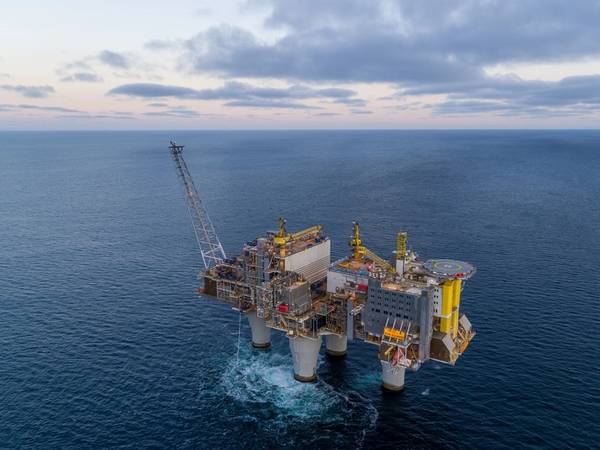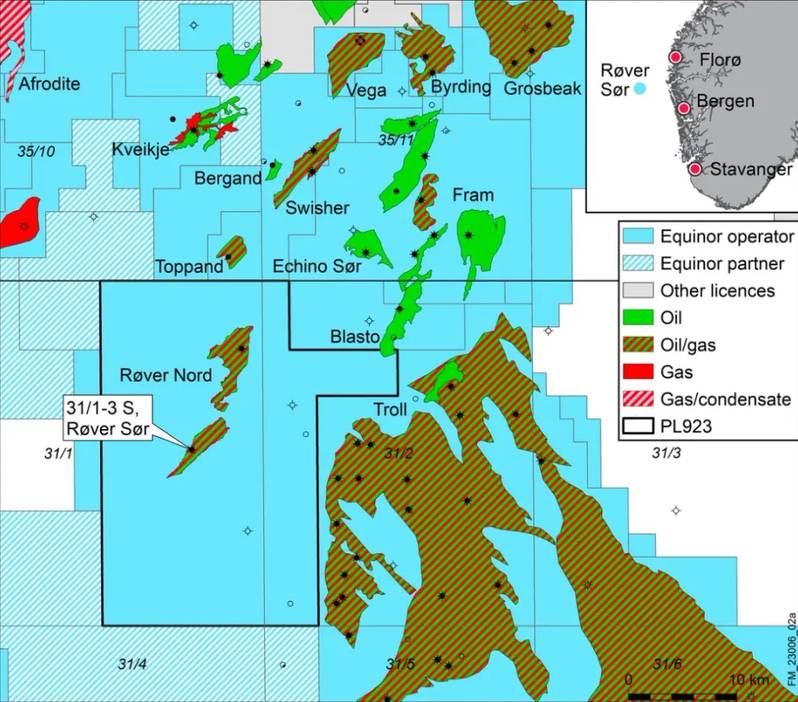
Norwegian oil firm Equinor said Thursday it had discovered oil and gas near its Troll field in the North Sea, offshore Norway.
The discovery, named Røver Sør, is the seventh discovery in this area since the autumn of 2019.
"According to preliminary estimates the size of the discovery is between 17 and 47 million barrels of recoverable oil equivalent, of which the majority is oil," Equinor said.
Equinor is the operator of the production licence where the discovery is located. The partners are DNO, Wellesley Petroleum and Petoro.
Geir Sørtveit, Equinor’s senior vice president for exploration and production west operations said:“Discoveries close to existing infrastructure are important to maintain oil and gas production from the Norwegian continental shelf. They need smaller volumes to be profitable and can be put on stream quickly with low carbon emissions. As this discovery is close to the Troll field and other discoveries we have made in the area, we can already now state that it will be commercial.”
The two exploration wells of the discovery were drilled by the Transocean Spitsbergen rig. ©Equinor
©Equinor
The six discoveries that Equinor have made earlier in this area are: Echino Sør: 2019, Swisher: 2020, Røver Nord: 2021, Blasto: 2021, Toppand: 2022, Kveikje: 2022
"There is uncertainty as to the size of the discoveries, but an average of the various estimates gives a total volume of around 350 million barrels of oil equivalent, corresponding to a medium-sized Norwegian oil or gas field, and the size of the Aasta Hansteen field in the Norwegian sea," Equinor said.
“Equinor has started field development projects to coordinate the development of these discoveries by utilizing existing infrastructure in collaboration with our partners. This discovery will be part of this work,” says Sørtveit.
The name of the next exploration well in this area is Heisenberg. The results of this well are to be ready in March. More exploration wells are planned in the area later this year, Equinor said .
Equinor also shared its exploration strategy, which includes drilling for volumes in mature areas, where discoveries can be tied into existing infrastructure, and drilling between 20 and 30 exploration wells each year.
Around 80 percent of the exploration wells will be drilled in familiar areas near existing infrastructure, but certain new areas and ideas will be tested, Equinor said.
Equinor further said the wells would be drilled based on three main riteria: high profitability and low break-even prices, short payback time and low carbon intensity.